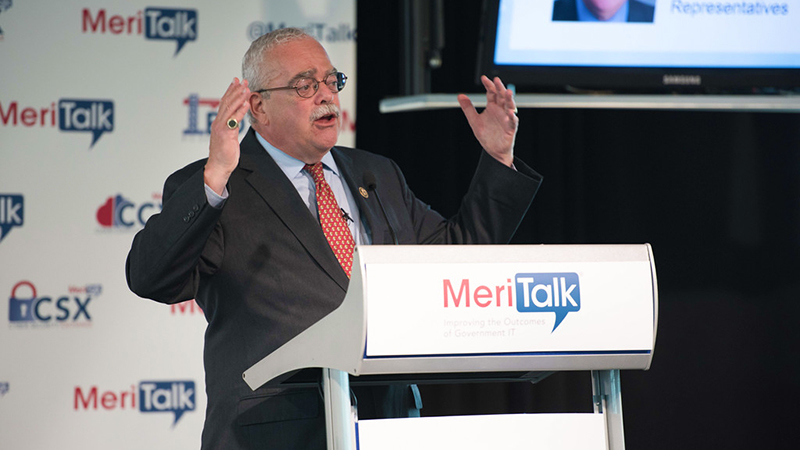
Congress will pursue IT modernization legislation just as meticulously as in the last Congress, in large part due to the high retention of active representatives in the last election, Rep. Gerry Connolly, D-Va., said at the Cloud Computing Caucus Advisory Group’s Destination Cloud event.
“On the Hill, on the House side, all of the actors who’ve been supporting legislation, introducing legislation, and overseeing the implementation of legislation, all of us got re-elected,” said Connolly. “All of the principals got re-elected which means there’ll be continuity up here. And we’re going to be boringly disciplined in pursuing this.”
That includes the reintroduction of the Modernizing Government Technology Act, which was introduced in the last Congress and passed the House but did not make it through the Senate before the end of the session.
“I also believe Will (Rep. Will Hurd, R-Texas) and I will reintroduce the MGT Act,” which is designed to help agencies to implement the Federal Information Technology Acquisition Reform Act, said Connolly. He added that the MGT Act is also intended to provide agencies with a modernization fund to support IT initiatives.
“We’ve got to move toward a more efficient system, and we’ve got to make those investments to retire those legacy systems. We’ve got to make sure that we’re cyber conscious. And we’ve got to consolidate the data centers that are stovepiped. Inefficiency is staring you in the face,” said Connolly.
Leaked drafts of an executive order on cybersecurity addressed this need for IT modernization for cybersecurity purposes, but placed responsibility on agency secretaries, rather than CIOs. Connolly told MeriTalk that judgment of the order’s effect on IT modernization will have to be reserved for when the order is officially released, as “the devil is in the details.”
“We just want to make sure it’s synchronized with the law, and FITARA is the law,” said Connolly. “And if it enhances the implementation of the law, well that’s great.”
Connolly also said that security cannot be used as an excuse for agencies that are slow to move to the cloud.
“It’s interesting that a majority of Federal agencies responding to ‘Well, why haven’t you, on an accelerated basis, moved to the cloud?’ say ‘I’m worried about security,’ ” said Connolly. “Now that’s interesting to me, because the CIA is moving to the cloud. If they’re not worried about security in that relationship, how does agency X get away with that argument?”
The good news, according to Connolly, is that most CIOs with primary responsibility in Federal agencies understand the need to retire old systems and move to the cloud.
“[They] want to be change agents. They want to cooperate and they are,” Connolly said.
Among those CIOs, Connolly said that the objective is to focus on a mentality of primus inter pares, or “first among equals,” due to the high number of CIOs in the Federal government.
“I mean, when we wrote FITARA, I was shocked at this little piece of data that among 24 Federal agencies 250 people have the title CIO. Well, that means management, accountability, and responsibility is this: ‘Oh that’s not me, that’s him,’ ” said Connolly. “How does that help decision-making, how does that place both responsibility and accountability in one central place?”
By contrast, most big corporations have only one CIO, a model that Connolly said he’s looking to emulate.
“What a novel thought for managing a big enterprise,” Connolly said. “We have to move to a corporate model that works.”
